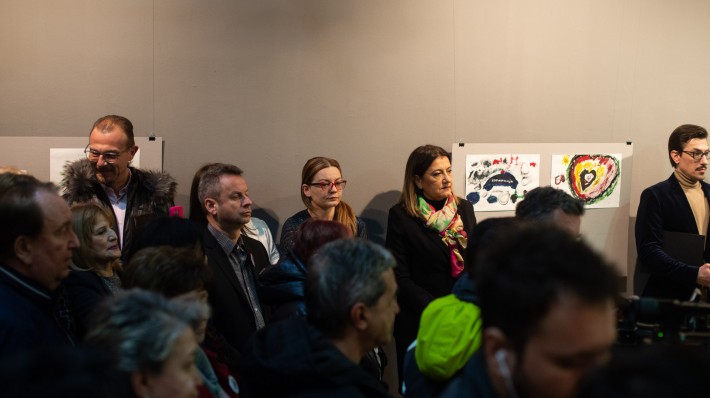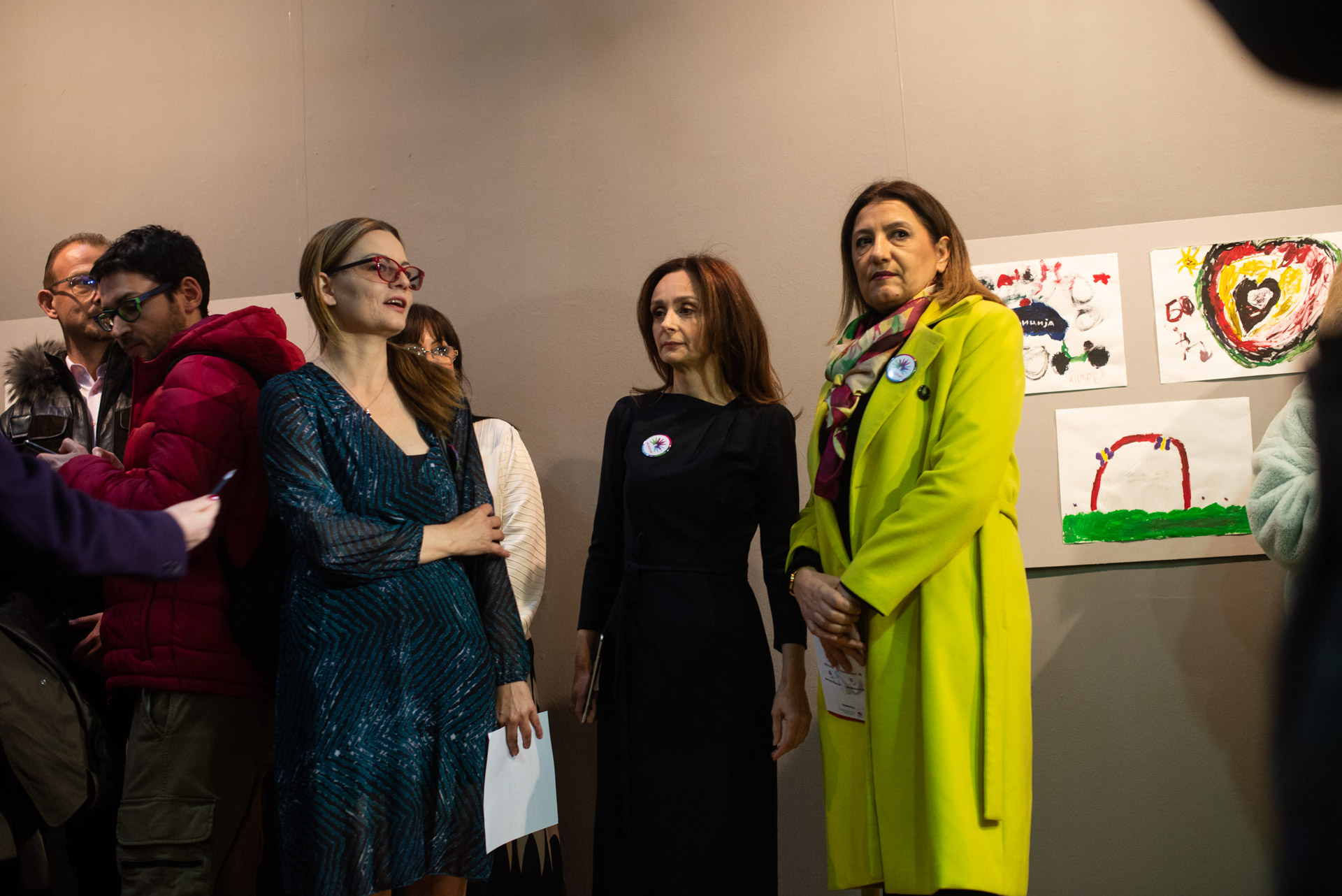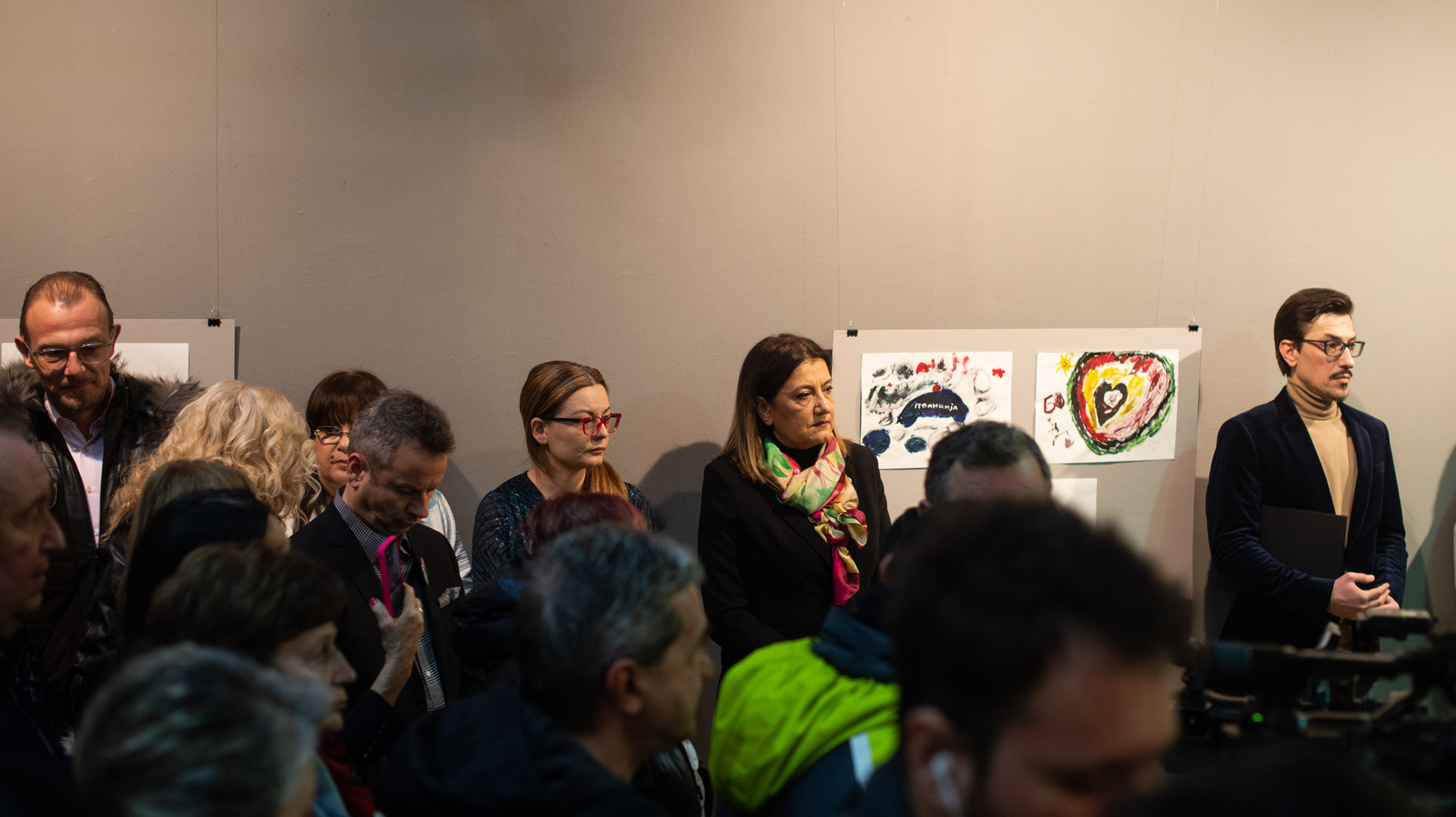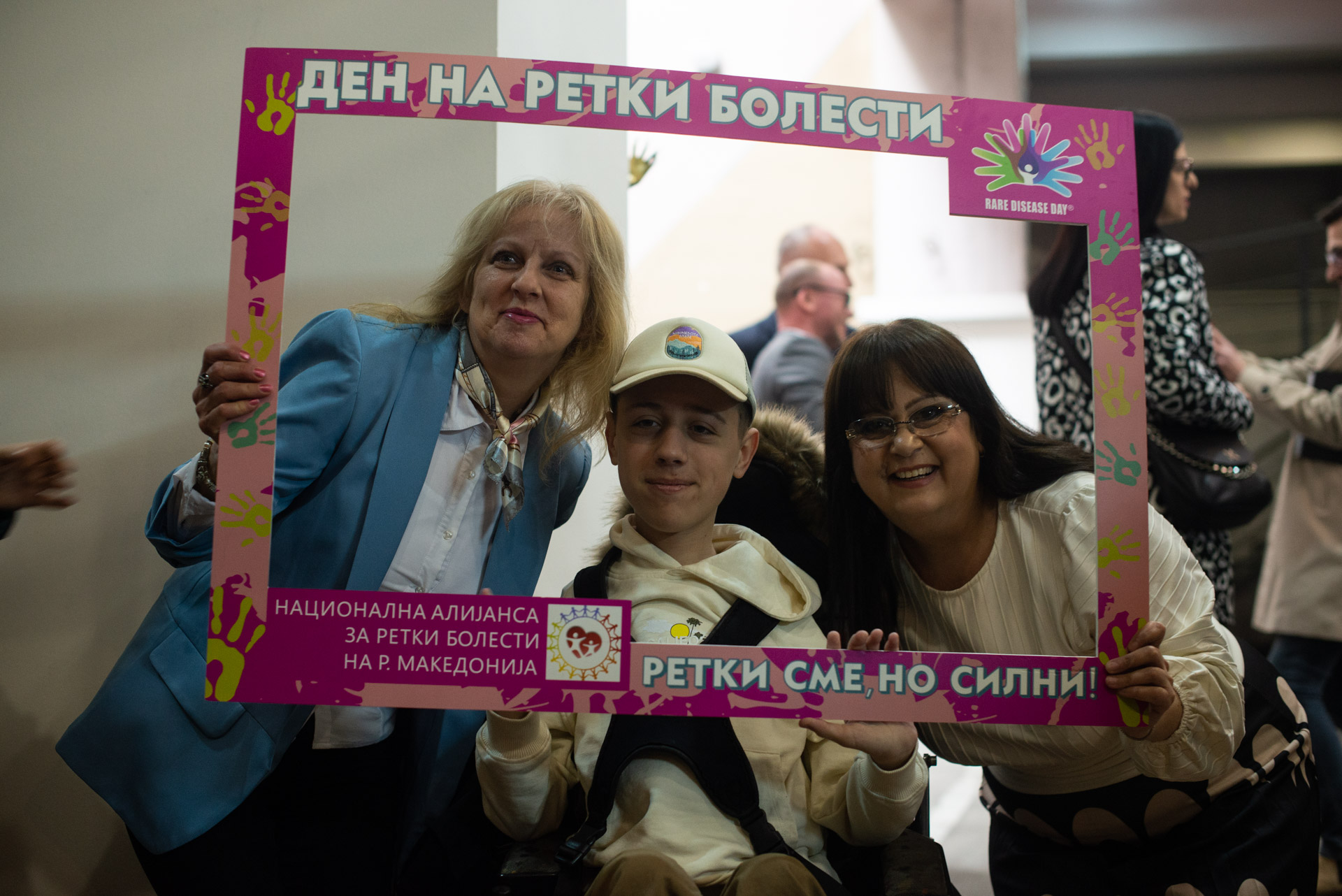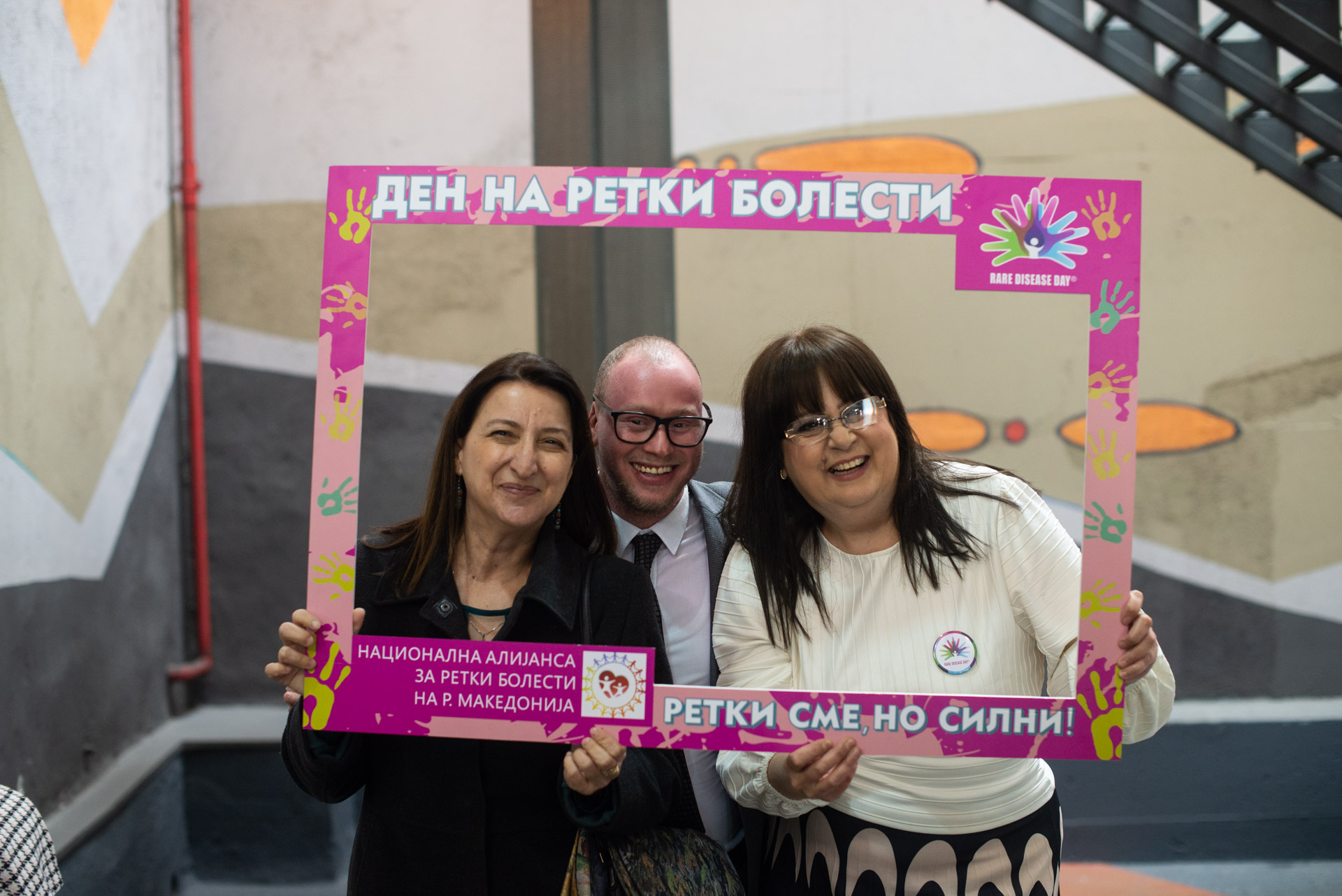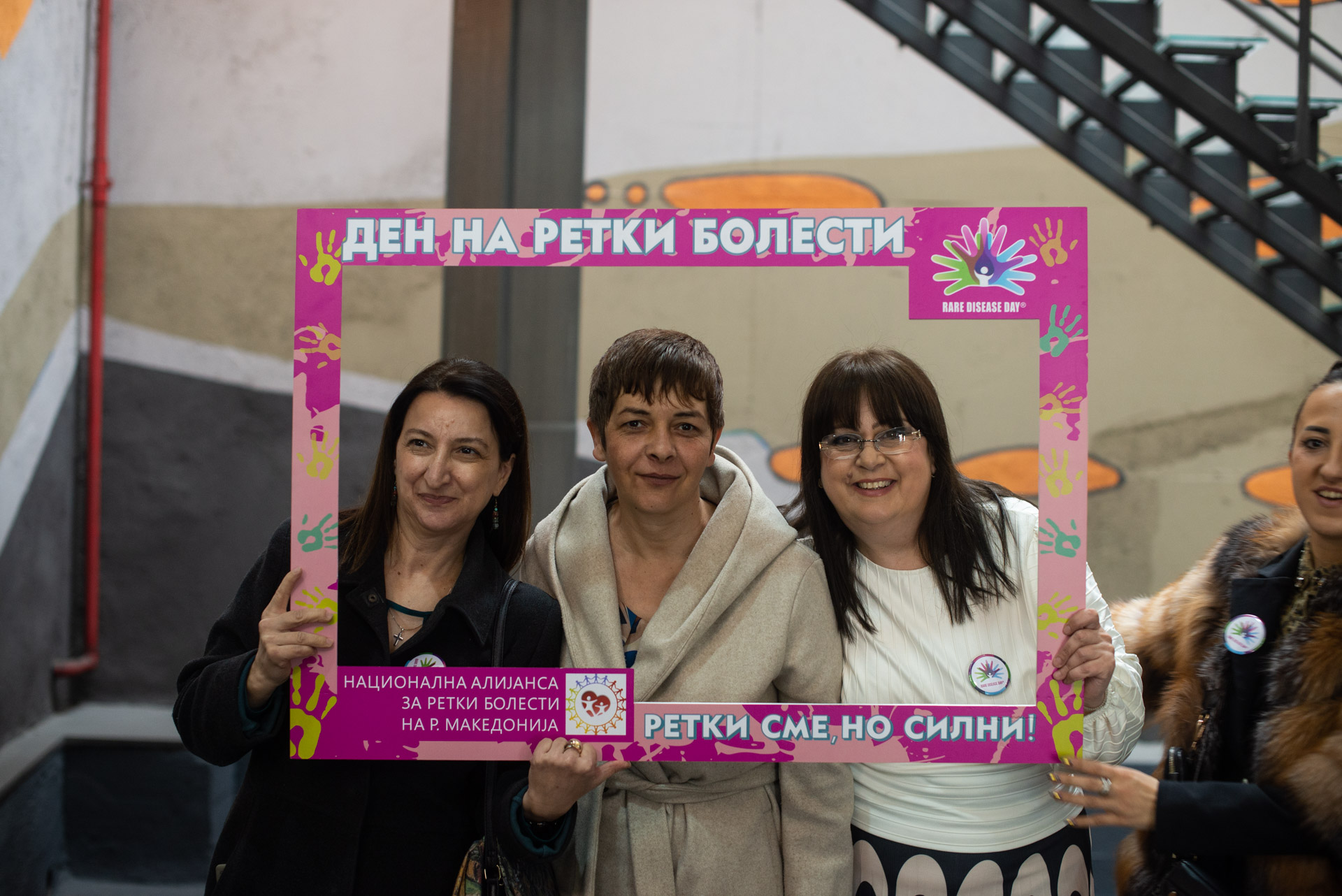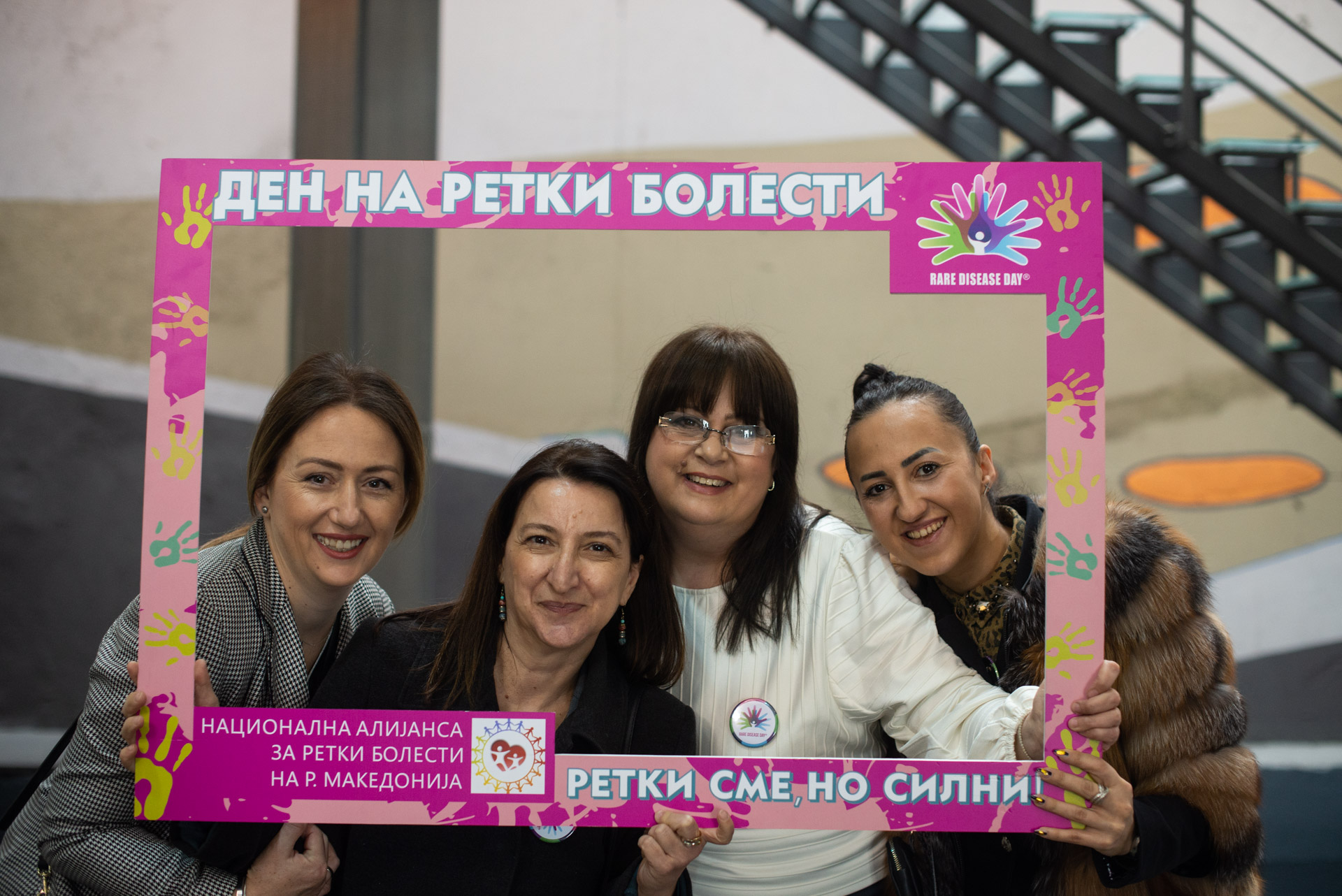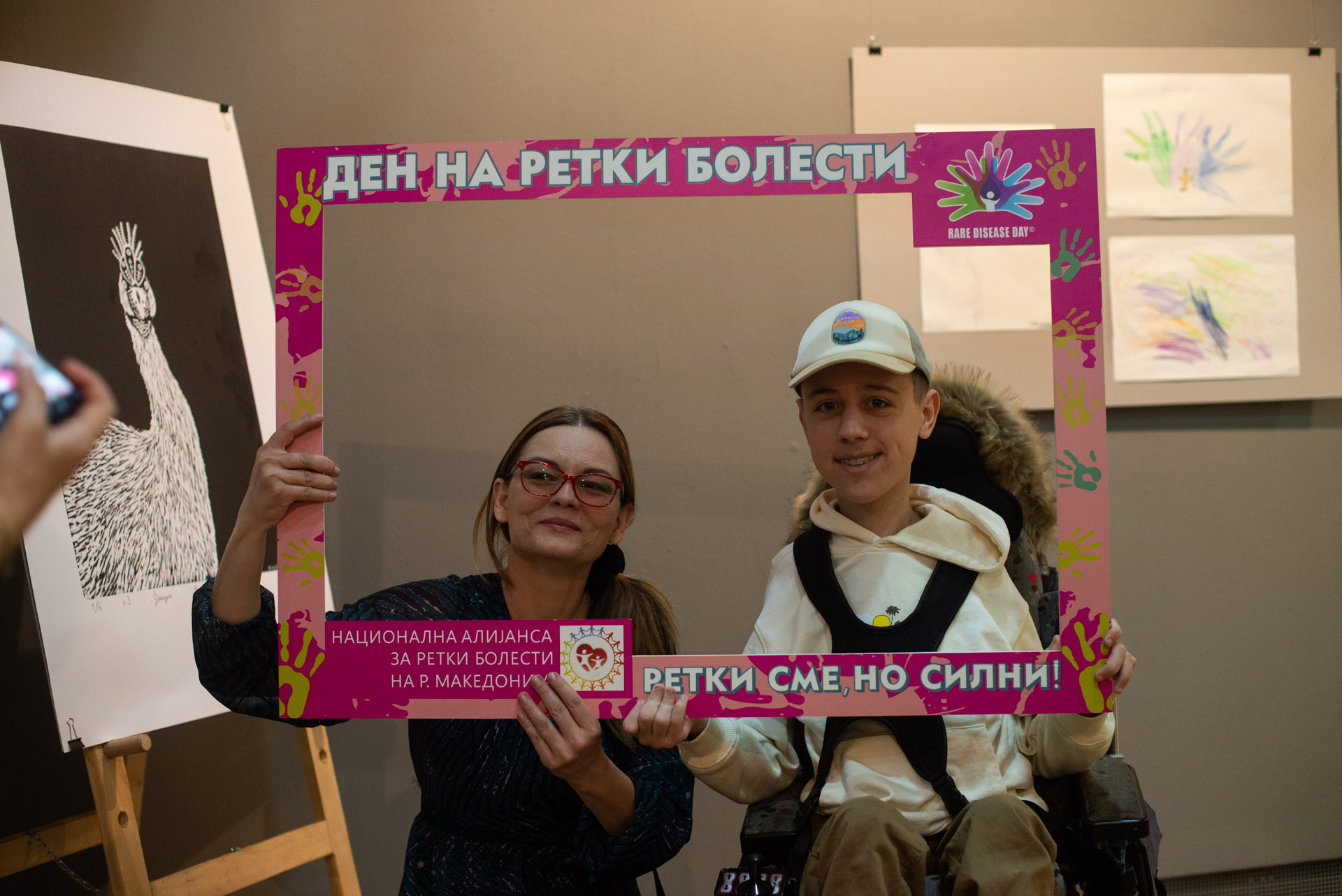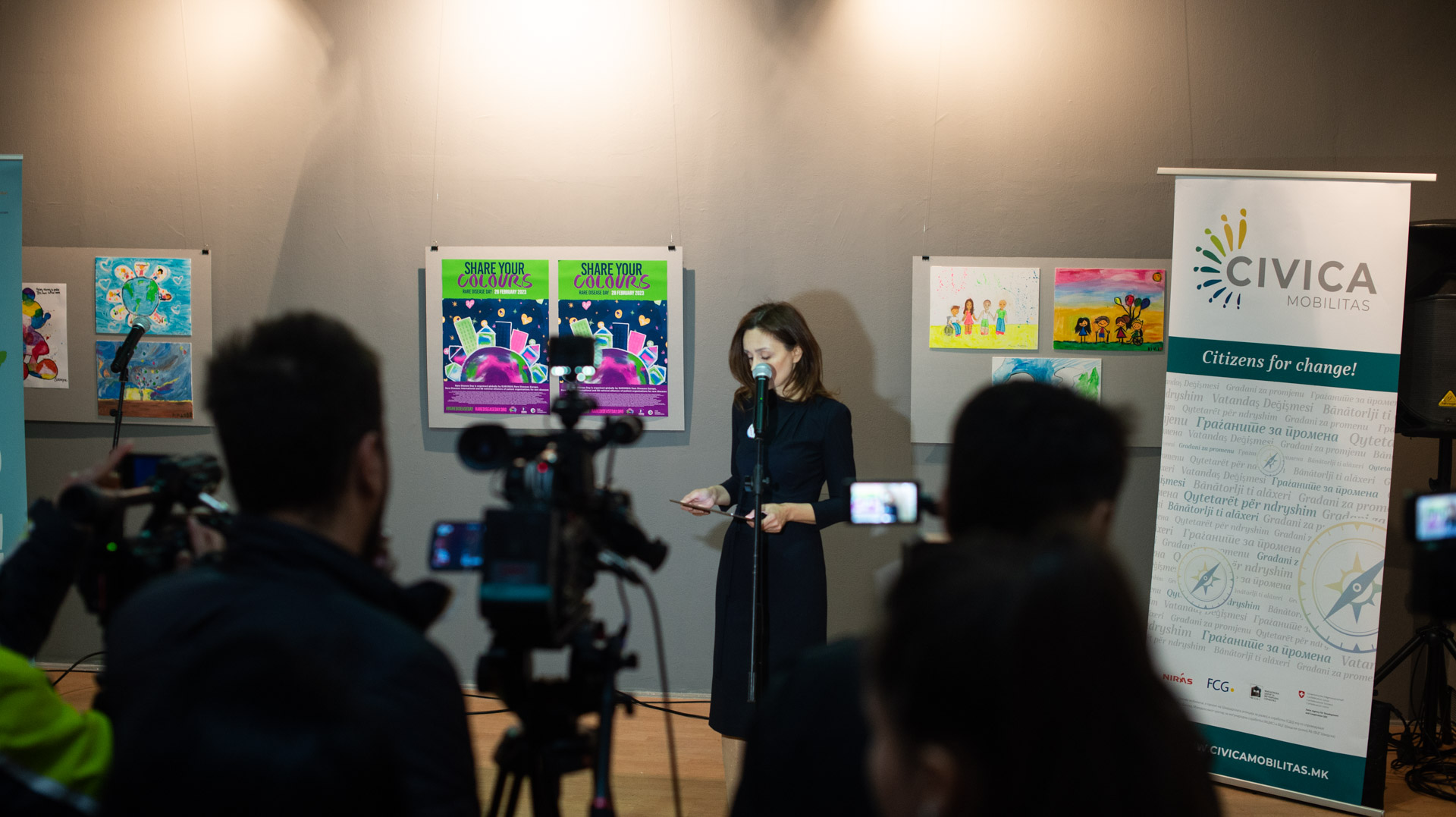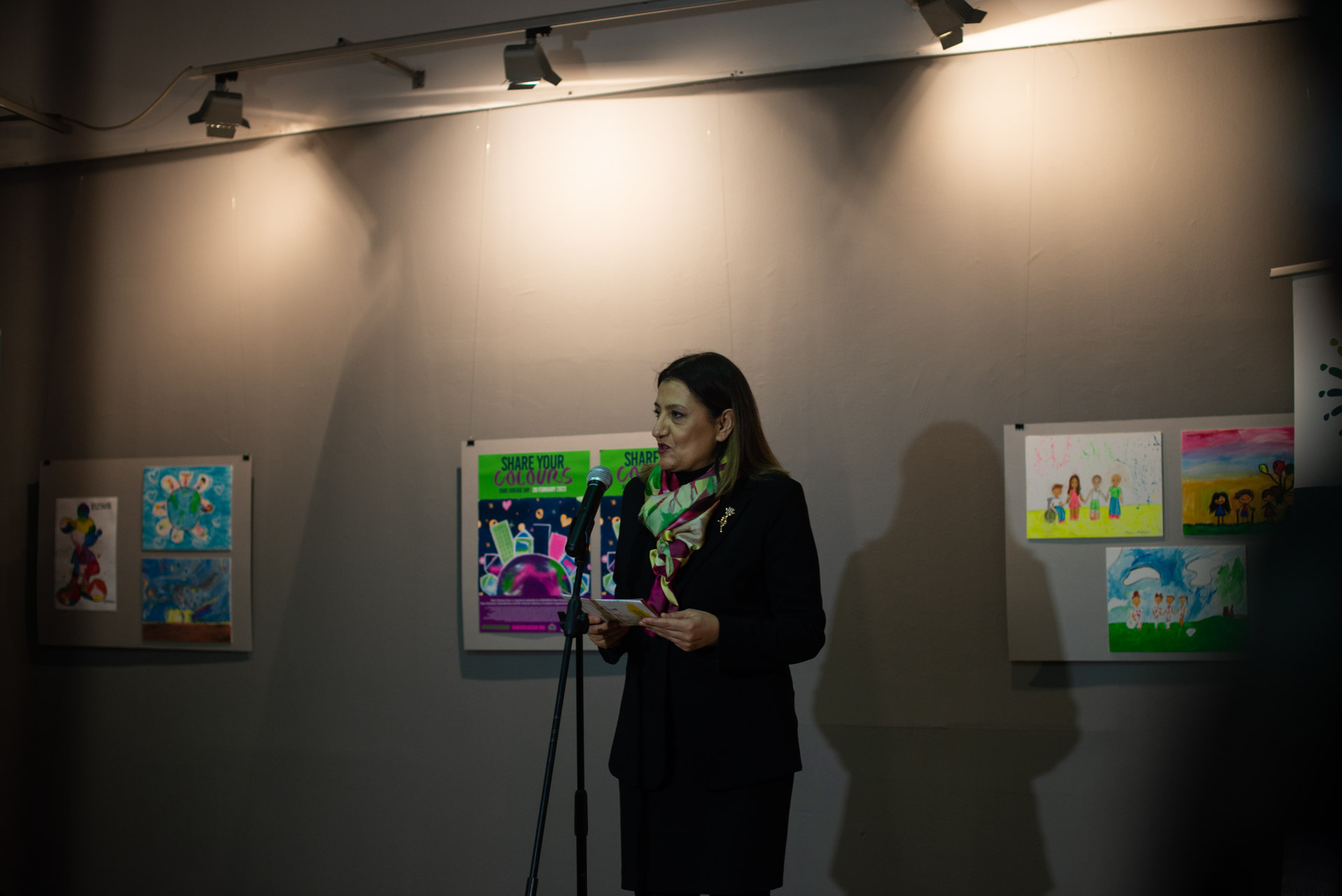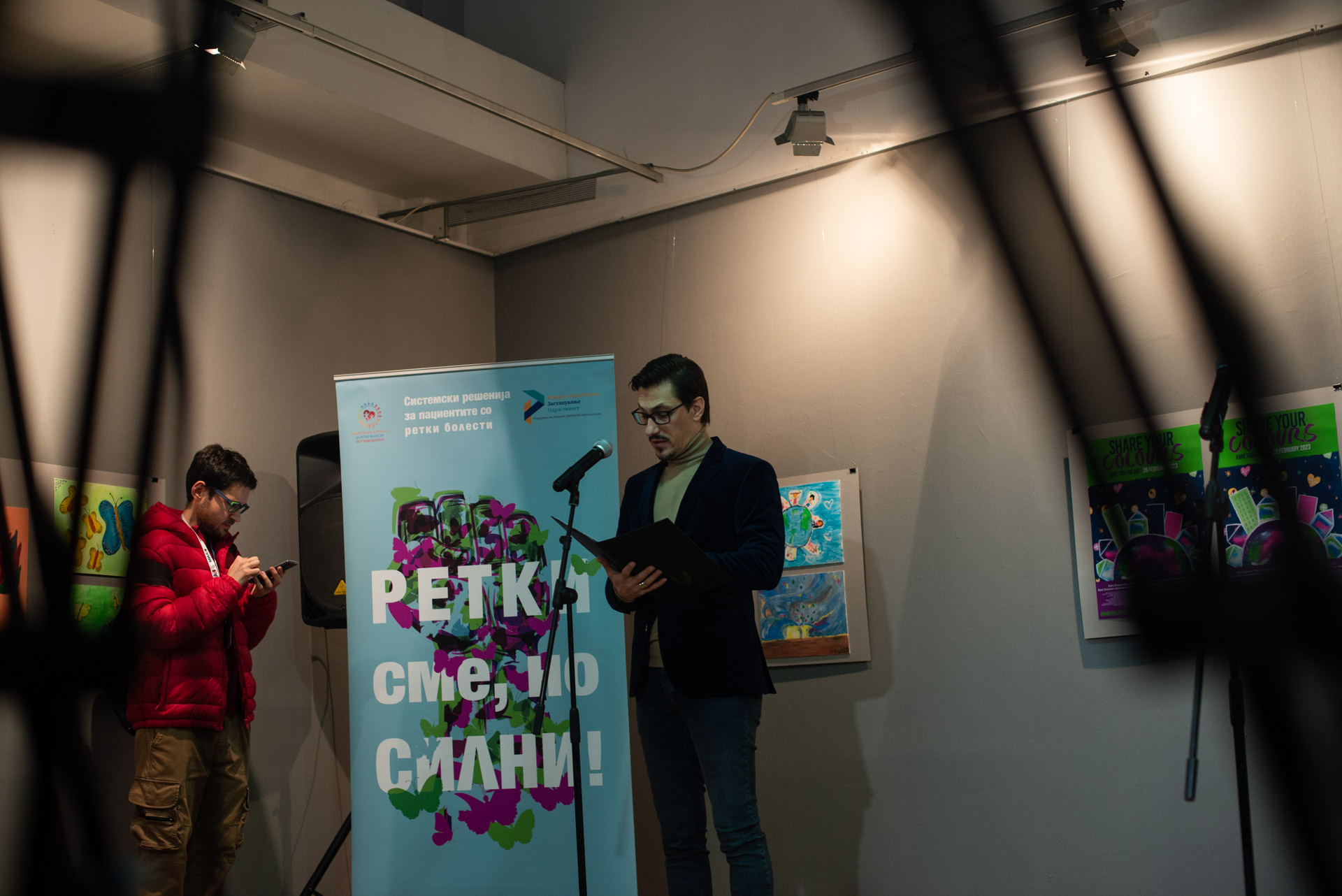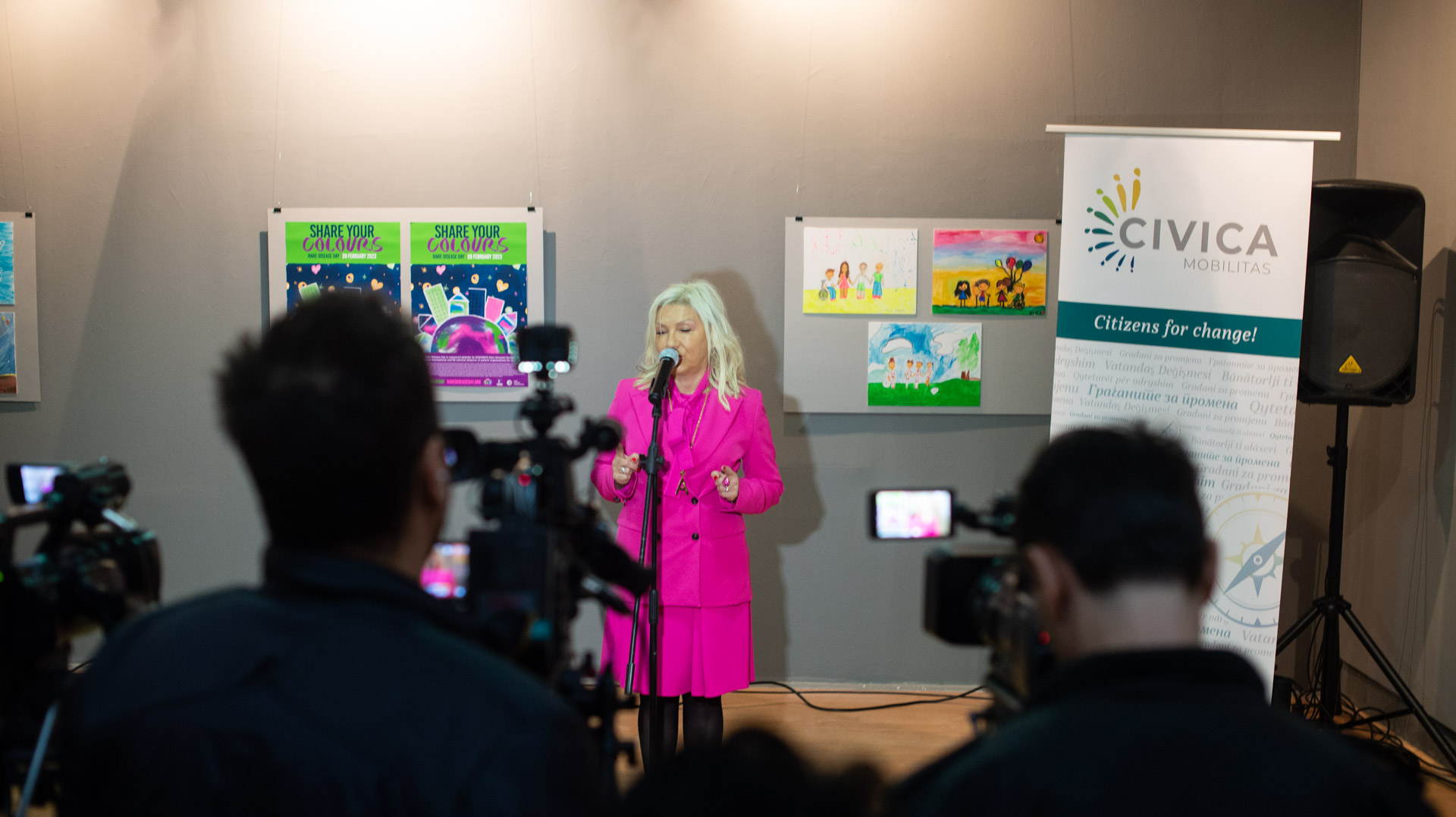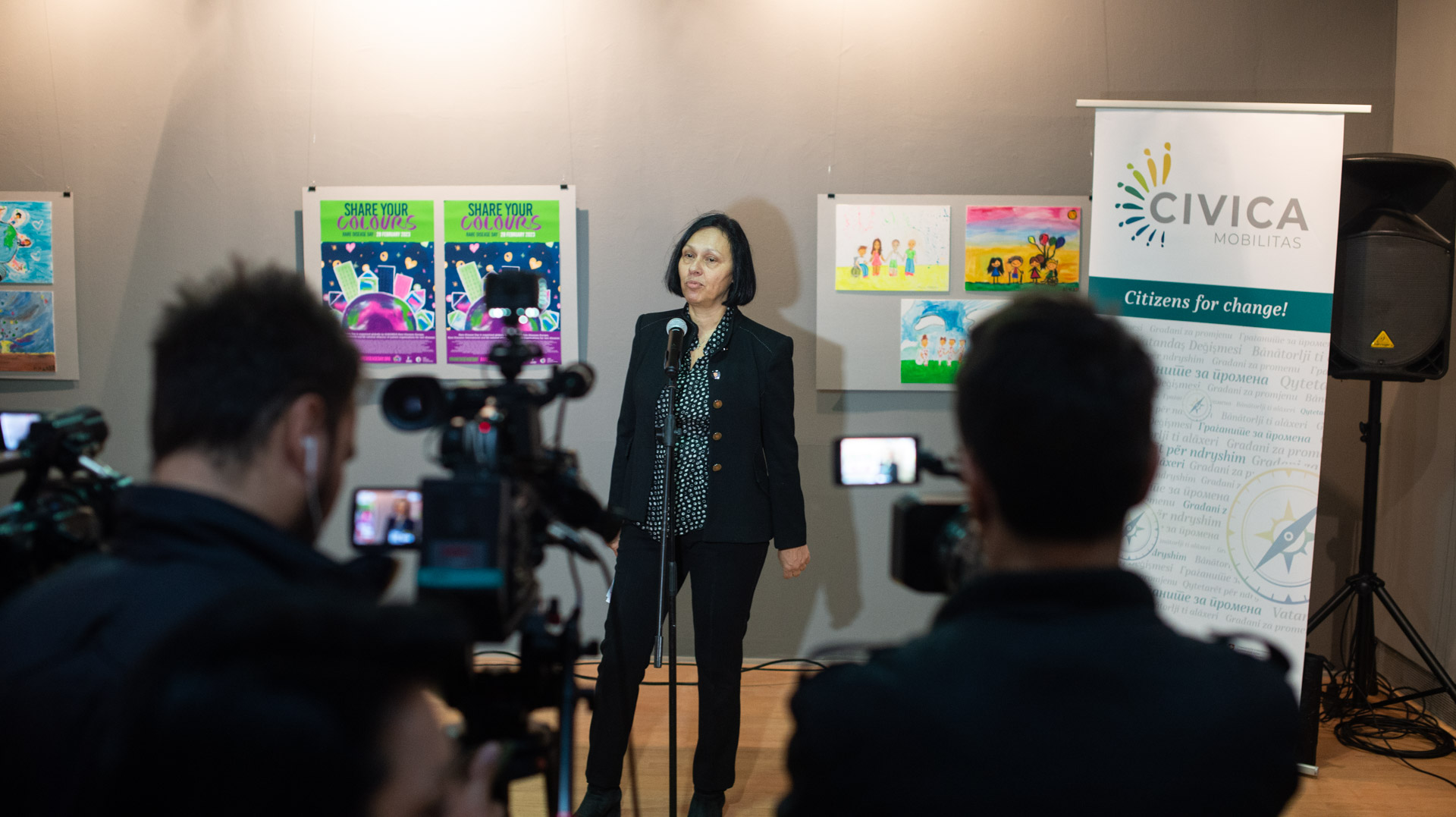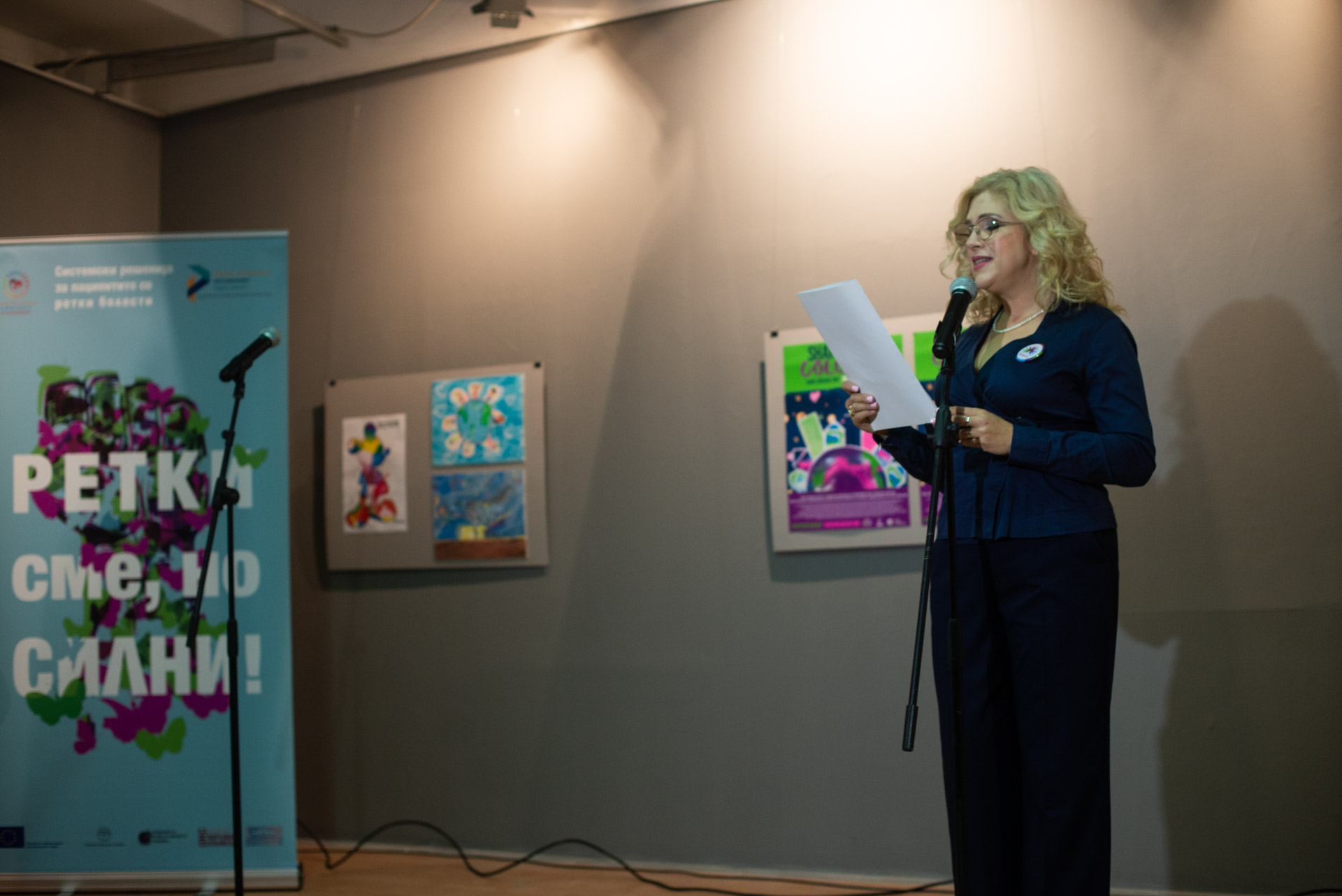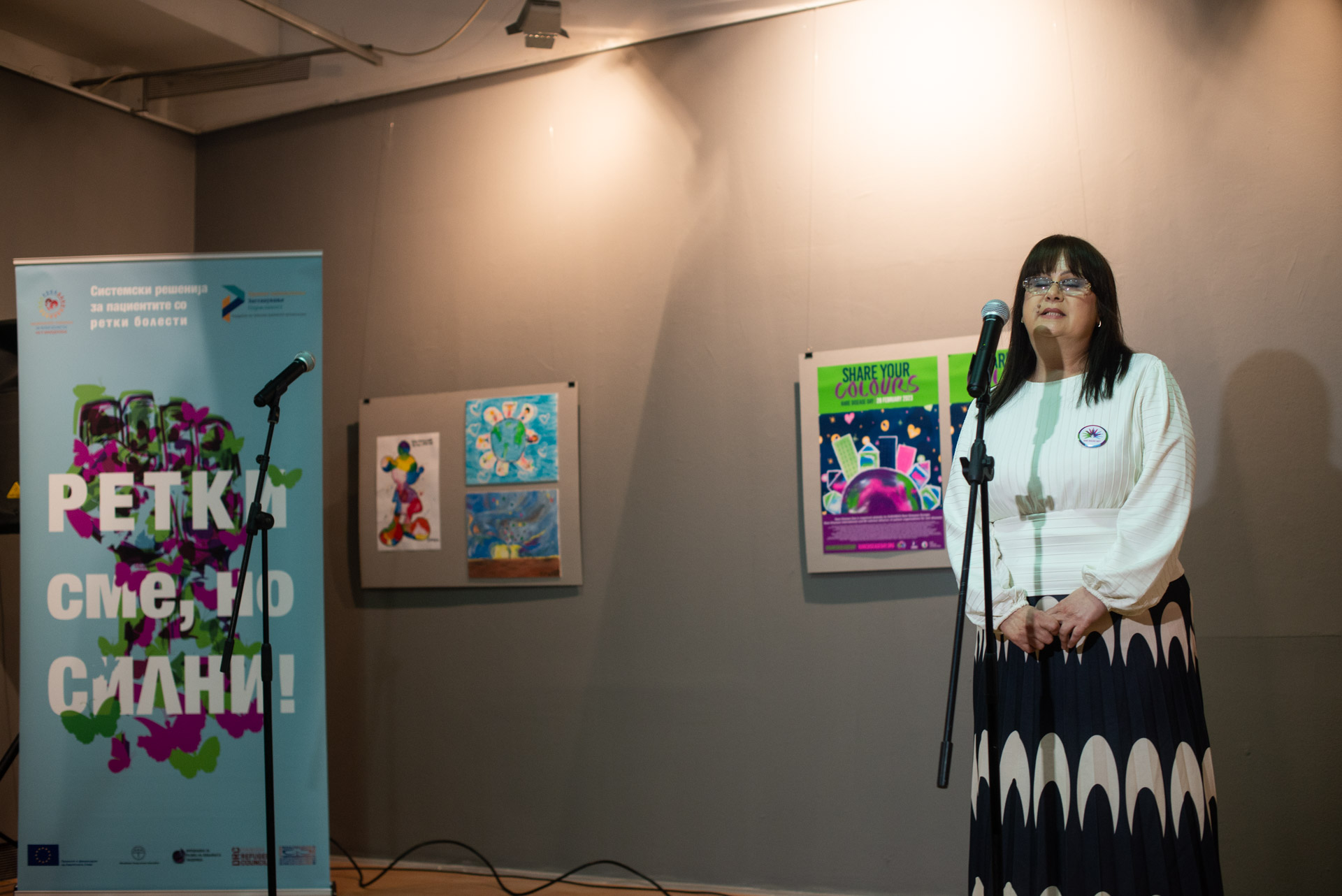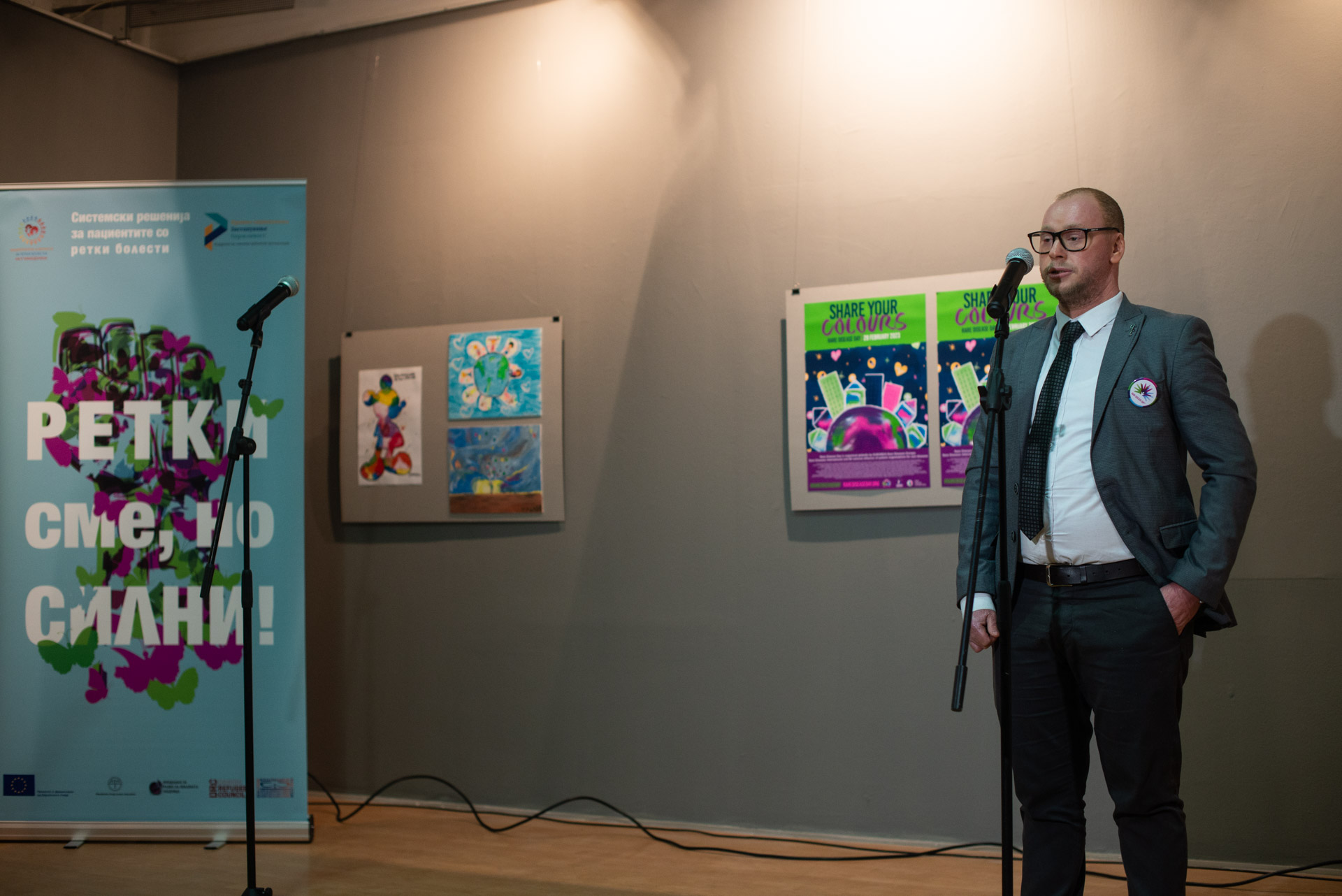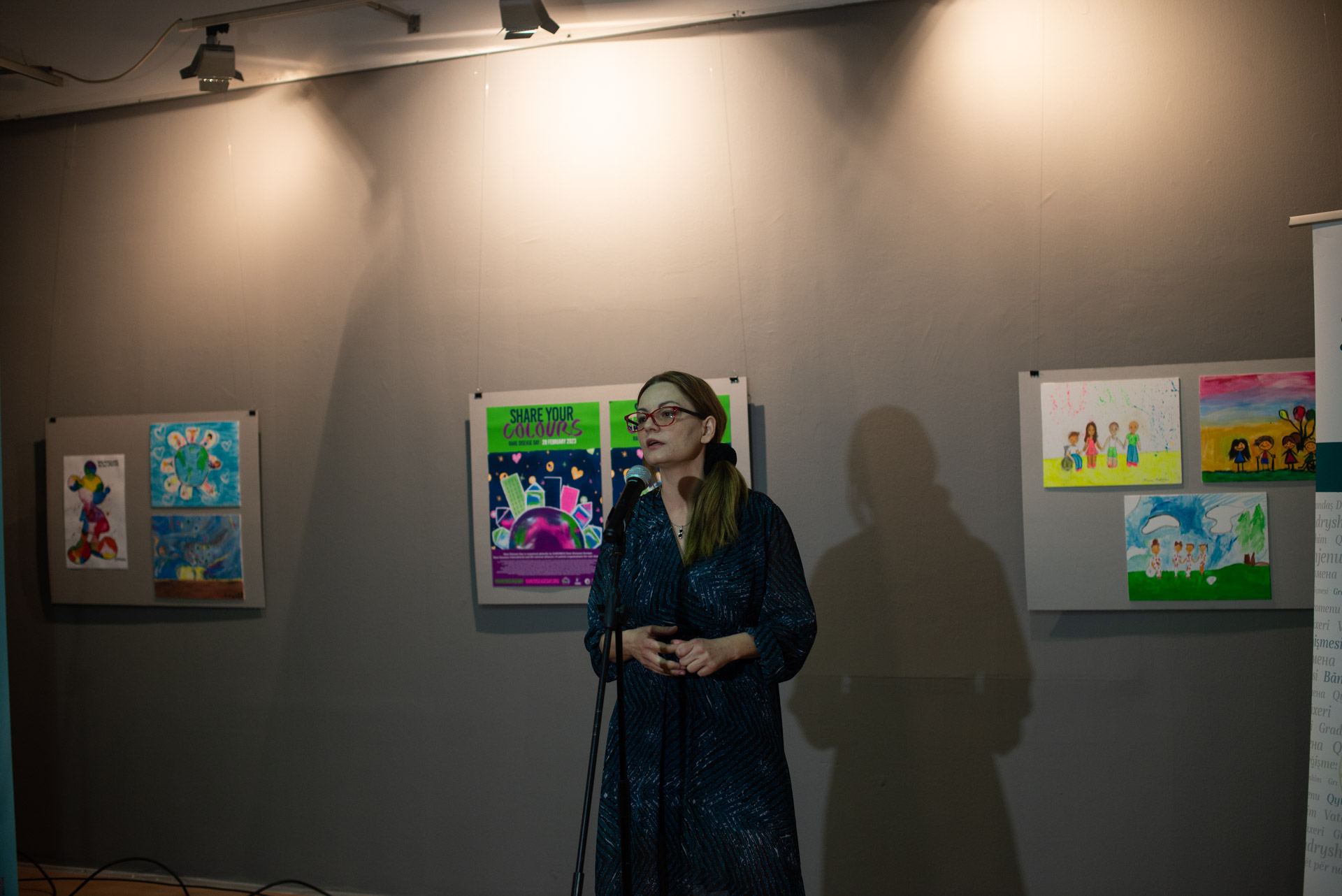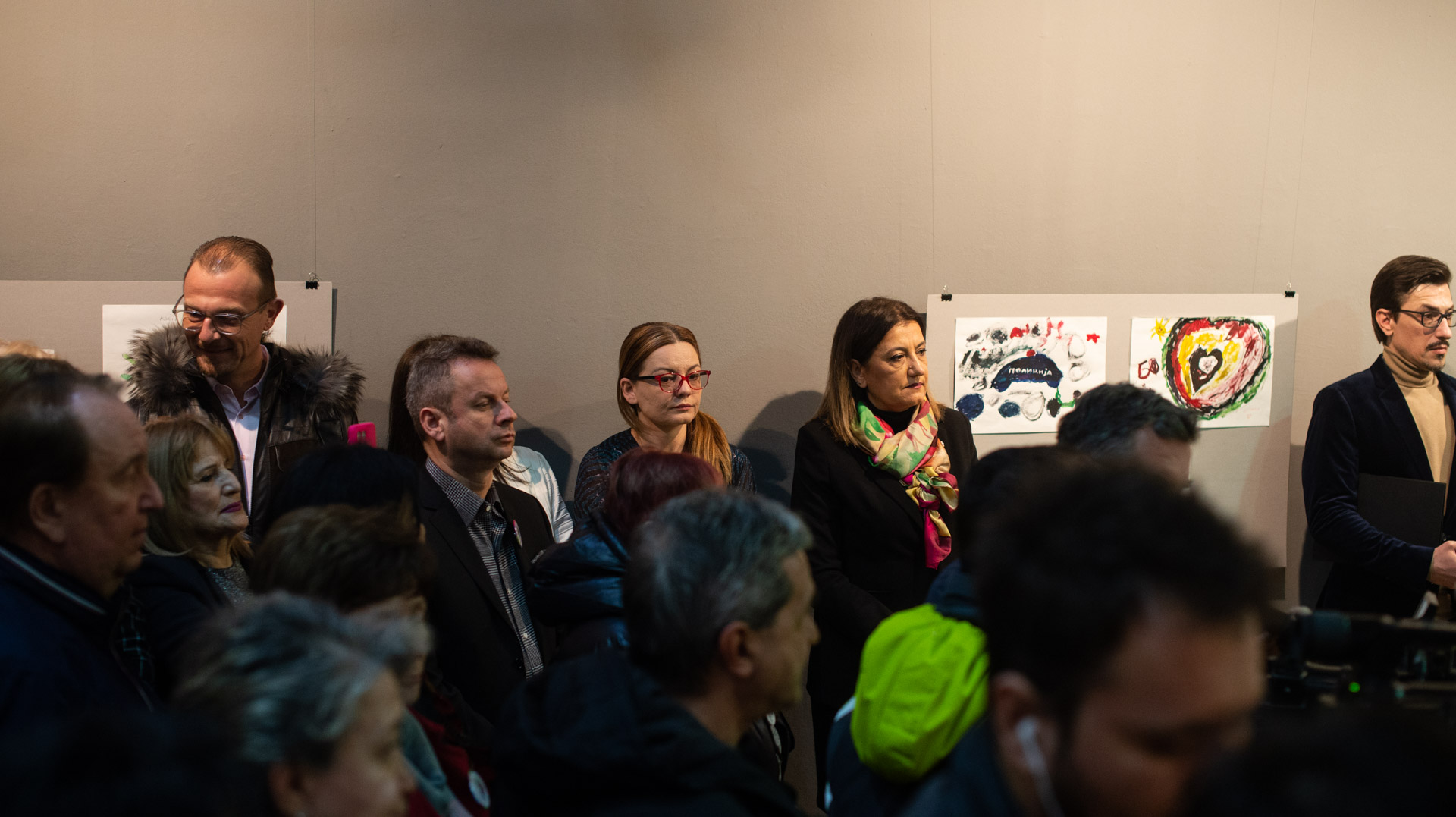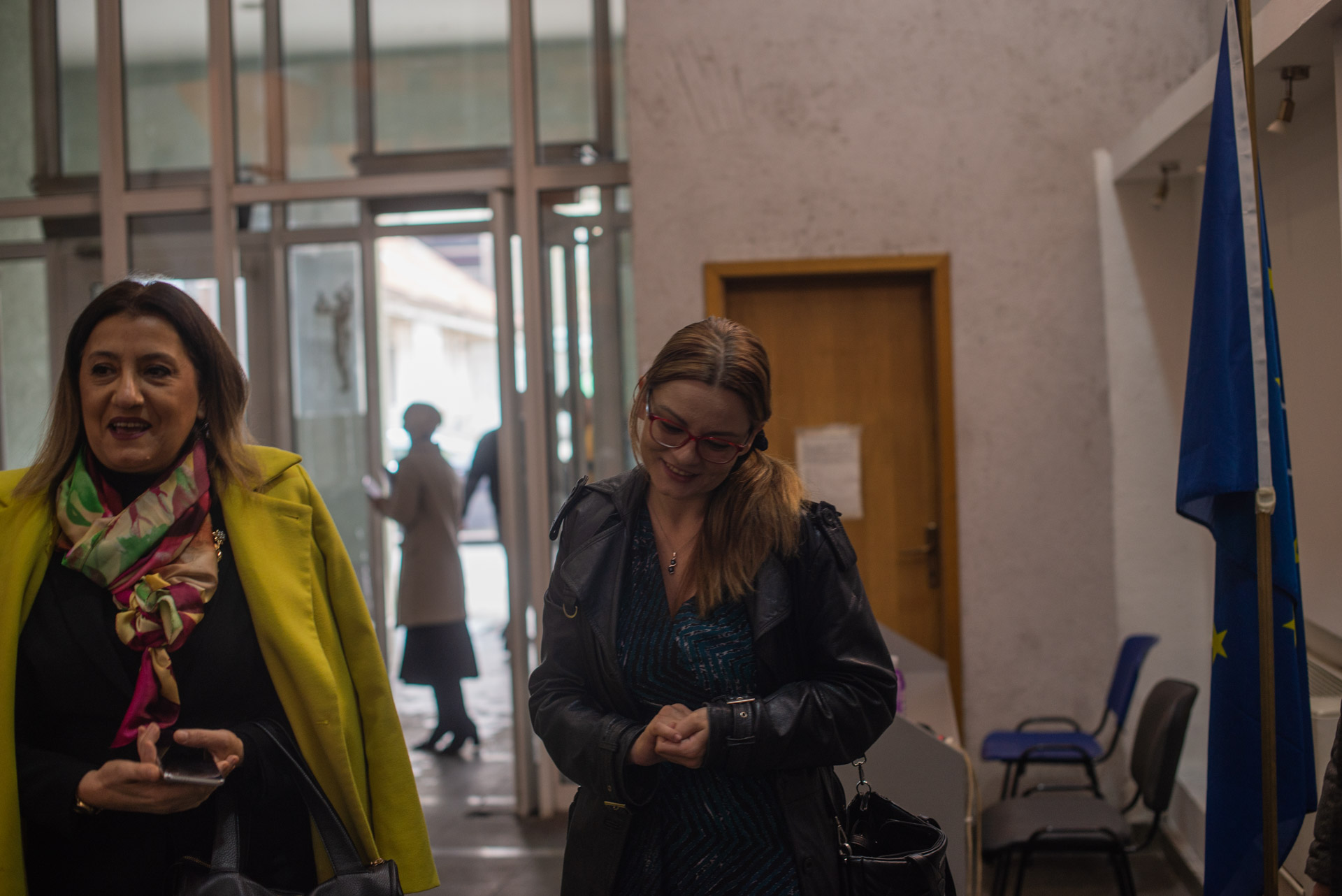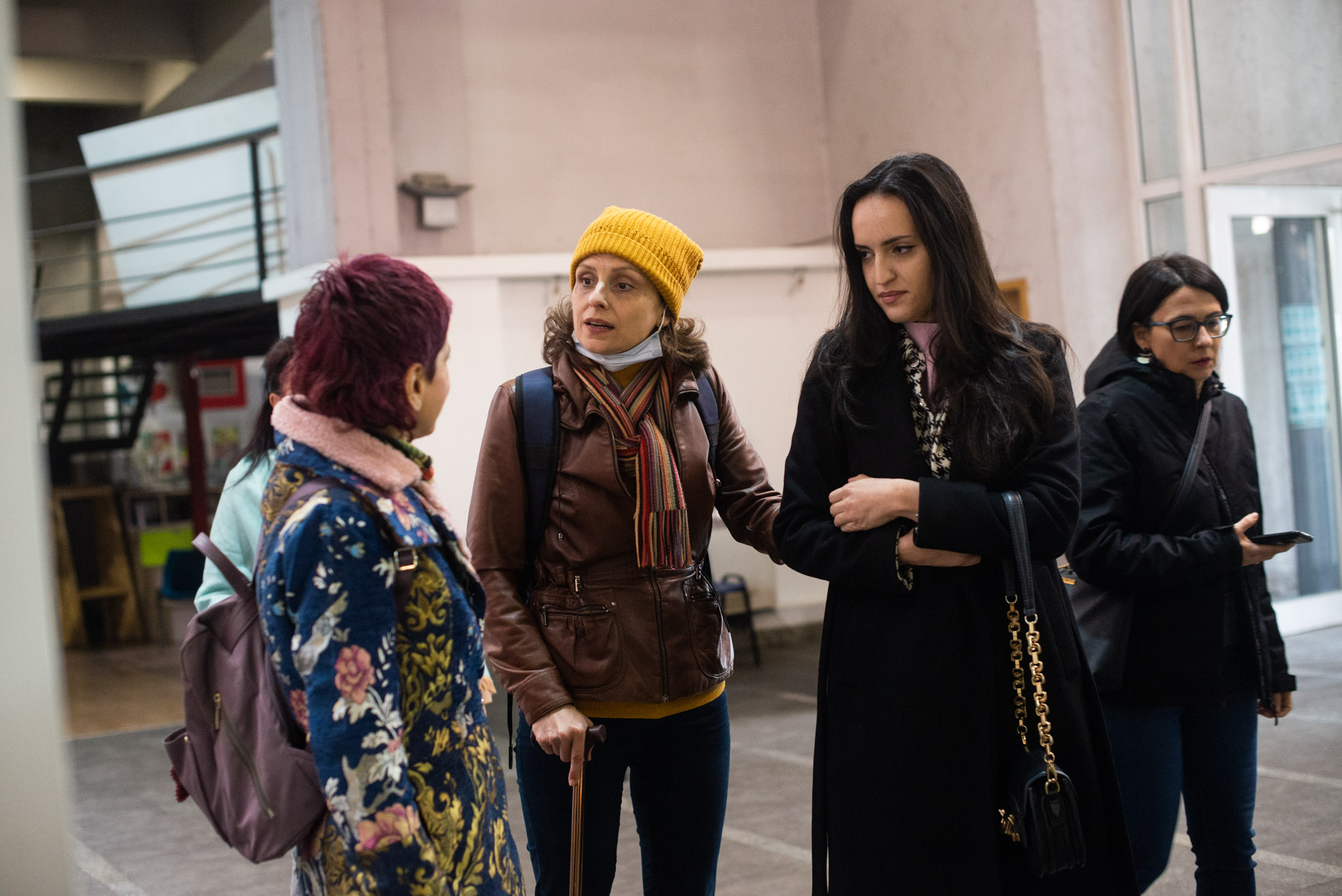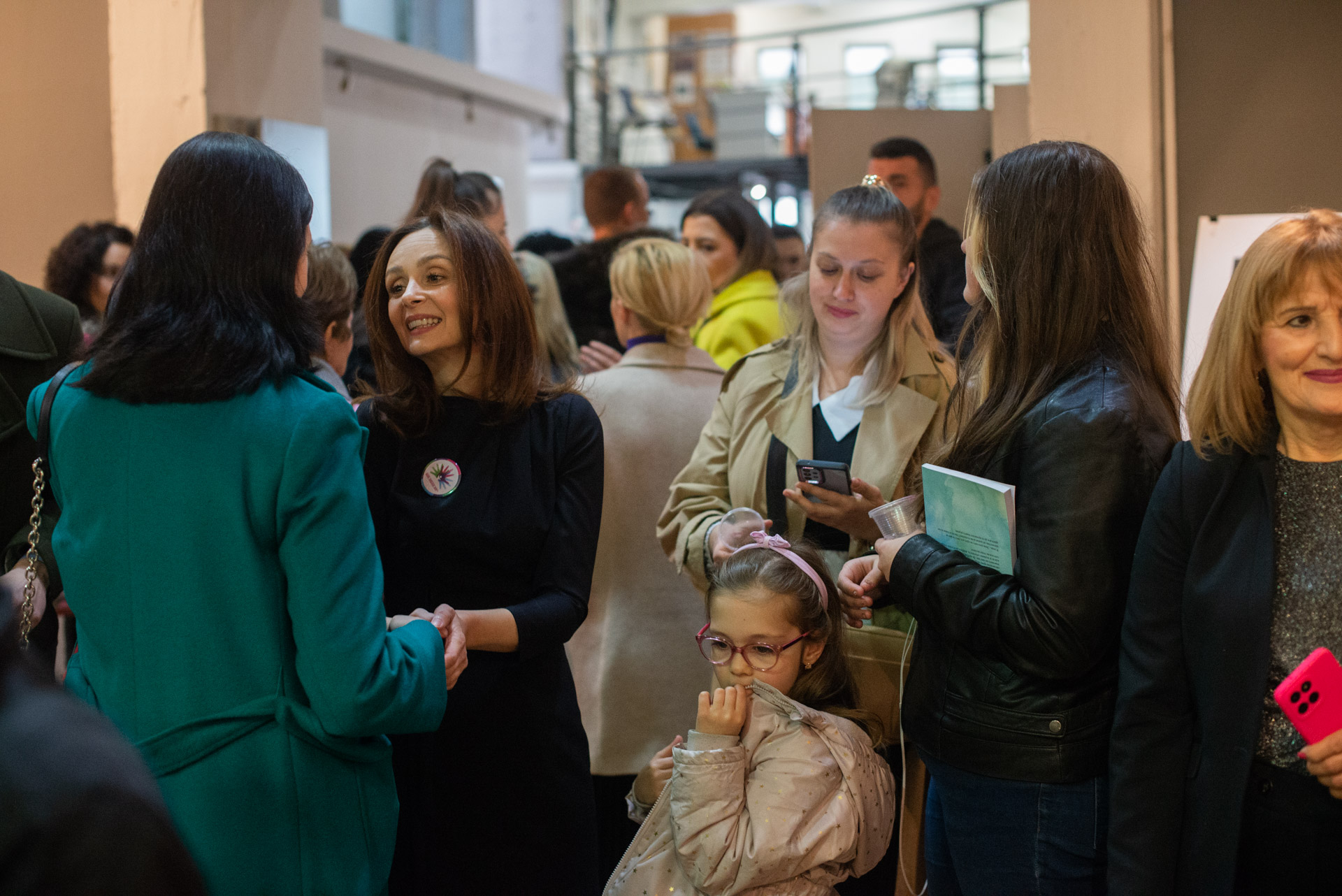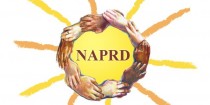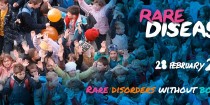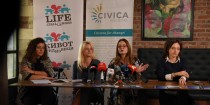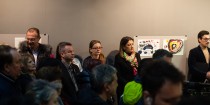Rare Disease Day – February 28, was celebrated on February 28, at “Mala stanica” within the National Gallery of Macedonia, at 11:00 a.m. The day was characterized with an exhibition of pictures by children with rare diseases, and by children who dedicated their drawings to children with rare diseases, also with speeches by relevant representatives of institutions and associations, as well as with a discussion of the problems and challenges that patients face on a daily basis.
The event was organized by all associations for rare diseases under the umbrella of the National Alliance for Rare Diseases of the Republic of North Macedonia. Several associations for rare diseases were present to celebrate the day together and talk about the problems and challenges we face every day.
Of exceptional importance is the fact that, for the first time, we had a very large turnout of attendees at the celebration of the day. There were doctors from almost all of the clinics from the University Clinical Center Skopje, representatives of the Ministry of Labor and Social Policy, representatives from MASA, representatives from the Commission for Rare Diseases, representatives of rare disease associations and other associations that advocate for the rights of patients, families, patients, representatives of pharmaceutical companies and drug distributors, media, supporters… only together we can achieve more, and we can make our country to adequately care for families with rare diseases and all their rights to be available and guaranteed by law.
The event was opened bt Mrs. Elizabeta Gjorgievska, the First Lady of Republic of North Macedonia, followed by speeches by the Minister of Labor ad Social Policy, Mrs. Jovanka Trenchevska, President of the Comission for Rare Diseases, Prof. Dr Aspazija Sofijanova, Institute of Genetics at MASA, Prof. Dr. Dijana Plasheska Karanfilska, President of the National Alliance for Rare Diseases, Mrs. Rebeka Jankoska Risteski, President of Life with Challenges, Vesna Aleksovska – for the depolarization project, President of It is Rare to be Rare – Ohrid, Mrs. Gordana Loleska for the campaign “Learning about rare diseases”, Josif Mishevski, a patient with ichthyosis.
On this occasion, the project “Through depolarizations to democratic, stable and inclusive institutions: Contribution of civil society” was presented, with the support of the Swiss Agency for Development and Cooperation within the Civica Mobilitas program, led by ISSHS with partner organizations: Institute for Media and Analytics, Balkan Institute for Regional Cooperation, and Life with Challenges. The main goal of this project is critical and informed dialogue, monitoring, analysis and advocacy for policies that will contribute to strengthening the capacities of the executive power for building democratic and inclusive institutions. More about the project on the following web-page: https://www.depolarizirajse.org/
The activities that will be carried out include:
– Analysis of general acts and principles of public administration using RESPA and SIGMA methods and policy analysis;
– Analysis of sectoral policies for the geographically-ethnically socially marginalized, and the marginalized based on their physical challenges (ableism discrimination);
– Developing case studies for policy advocacy towards more democratic institutions, socially inclusive towards the marginalized;
– Organizing advocacy panels in several regions of the country, where the values and ways of applying the principle of “democratic institutions” will be presented through practical examples;
– Spreading the idea through the media in different regions and in languages other than Macedonian;
– Direct representation before the relevant sectors (which will result from the data from the analyses);
– Media analysis and monitoring, accompanied by a campaign (while using its social media platforms and its own online media) for greater visibility for the goal – through depolarization to democratic institutions
All these activities will contribute to: greater awareness of democratic institutions among civil society organizations, the general public, but also the institutions themselves; depolarization of public speech through supra-party and supra-ethnic dialogue of the informed public; strengthened civil sector through cooperation and networking, as well as raising the capacity of the institutions for policy-making with a special focus on the horizontal value “democratic institutions”.



